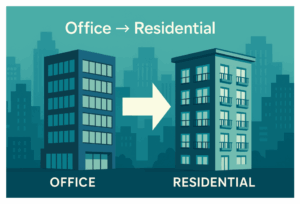Introduction: The real estate market, encompassing both residential and commercial properties, often involves complex transactions. Short sales, where properties are sold for less than the mortgage amount, can occur in both sectors. This guide provides insights into the short sale process for both homeowners and commercial property owners, explores alternatives, and highlights common mistakes to avoid.
Understanding the Short Sale Process:
Defining a Short Sale: A viable option for property owners facing financial difficulties, where the lender consents to a sale price below the mortgage balance.
- Establishing Financial Hardship: Essential for both residential and commercial property owners to demonstrate their financial challenges.
- Seeking Lender Approval: Critical as lenders agree to accept less than the owed amount.
- Listing and Selling the Property: Involves strategic pricing and effective marketing for diverse property types.
- Closing the Deal: Concludes with lender approval of an offer, regardless of property type.
Alternatives to Short Sales in Real Estate:
Options such as loan modification, refinancing, forbearance agreements, and deed in lieu of foreclosure, applicable to both residential and commercial properties.
Avoiding Common Short Sale Mistakes in Real Estate:
Key mistakes span across not exploring all options, mispricing properties, neglecting maintenance, underestimating complexities, disregarding professional advice, and overlooking tax implications.
Conclusion: Navigating a short sale, whether in residential or commercial real estate, demands deep understanding, patience, and strategic action. Professional advice is crucial for a smooth transaction.
Call to Action: Contact Renew Realty for insights and personalized guidance on real estate short sales. Visit Renew Realty’s Blog for the latest articles in the real estate market.




